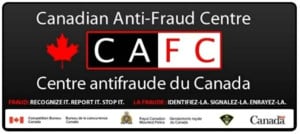 Canadian parents paying student loans is much more common than you’d think. That was never the plan. Your child was supposed to get a university degree with the help of student loans, graduate, land a good paying job and pay off their student loans. The reality of the situation is quite different. Firstly it’s a misconception that student loans cover the costs of a university degree. Student loans may cover a portion of tuition costs. Statistics Canada says undergraduate students paid an average of $5,772 in tuition fees in 2013 to 2014. But that average rises, depending on the field of study: law studies cost an average of $10,039 while undergraduate studies in dentistry cost $17,324 during that same year. This may seem manageable, but this only tells a small part of the story. When you factor in the costs of books, living expenses and transportation, according to a recent Bank of Montreal study the total current cost for an undergraduate university degree can exceed $80,000 and is expected to surpass $140,000 by the time a child born in 2014 is old enough to enroll.
Canadian parents paying student loans is much more common than you’d think. That was never the plan. Your child was supposed to get a university degree with the help of student loans, graduate, land a good paying job and pay off their student loans. The reality of the situation is quite different. Firstly it’s a misconception that student loans cover the costs of a university degree. Student loans may cover a portion of tuition costs. Statistics Canada says undergraduate students paid an average of $5,772 in tuition fees in 2013 to 2014. But that average rises, depending on the field of study: law studies cost an average of $10,039 while undergraduate studies in dentistry cost $17,324 during that same year. This may seem manageable, but this only tells a small part of the story. When you factor in the costs of books, living expenses and transportation, according to a recent Bank of Montreal study the total current cost for an undergraduate university degree can exceed $80,000 and is expected to surpass $140,000 by the time a child born in 2014 is old enough to enroll.
The second misconception is that a university degree is a guarantee of a good paying job. The reality is that it’s a very competitive market out there and many students aren’t making enough to repay student loans. Instead Canadian parents paying student loans is becoming an all too common story. In addition they’re paying for books and living expenses, even if it means sacrificing their financial stability. They’re delaying retirement, working more and borrowing money, potentially putting themselves in financial jeopardy.
There appears to be very few options when it comes to repaying student loans and that is another reason that leads to Canadian parents paying student loans. Even bankruptcy doesn’t discharge student loans until seven years after you’ve left school. In exceptional cases after five years you can apply to the court for special consideration (e.g. a disability which prevents you from working).
Canadian parents paying student loans may be in a financial danger zone. If you’re experiencing serious debt issues as a result of student loans or any other reason, you need professional help today. Contact Ira Smith Trustee & Receiver Inc. With a cumulative 50+ years of experience dealing with diverse issues and complex files, the Ira Smith team delivers the highest quality of professional service. Starting Over, Starting Now we can help you solve your financial problems.









